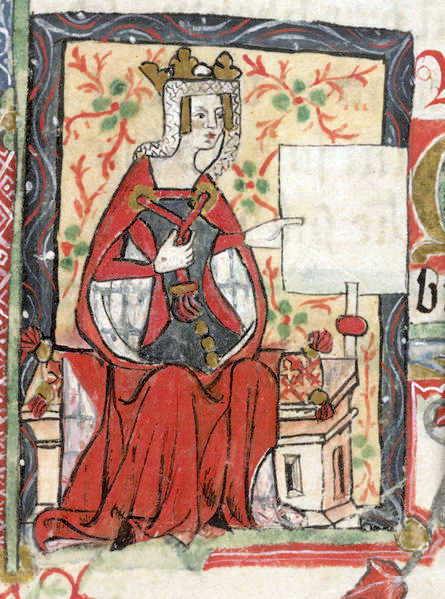Hello ladies and gents this is the Viking telling you that today we are talking about
Empress Matilda (1102-1167)
Despite a huge amount of resistance to the idea of a woman sitting on the English throne, Empress Matilda was a famously feisty monarch willing to put England through nearly a decade of bloody civil war in her attempt to claim her right to the crown. Daughter of Henry I of England and married to future Holy Roman Emperor Henry V in 1114, by her early teens Matilda was already one of the most powerful women in Europe.
After the death of her brother Prince William, the line of succession passed to Matilda, but Henry wasn’t keen to pronounce his daughter as heir. Henry remarried in the hopes of fathering a legitimate son, but the marriage ended childless. With no male heir in the running (none of his 25-or-so illegitimate children were eligible!) he was finally forced to pronounce Matilda as next in line to the throne.
Even though England’s nobility swore to recognise Matilda’s legitimacy, the idea of a woman ruler was unprecedented and unpopular, and after Henry’s death in 1135 a short coup led to Matilda’s cousin Stephen of Blois being crowned instead. Matilda was furious, and launched a campaign with her half-brother Robert of Gloucester and uncle David I of Scotland to take what she saw as her rightful place on the English throne. This wasn’t any old succession dispute, but one that ushered in a drawn-out period of civil war and lawlessness across England that has since become known as ‘The Anarchy’.
Although she got pretty close to the throne, beating Stephen at the Battle of Lincoln in 1141 and entering London the same year, she didn’t manage to win Londoners round and was chased back to Oxford before she could be crowned. Throughout the conflict Matilda had a hard time endearing herself to the public: contemporary chroniclers describe Stephen as a charismatic and charming leader, while Matilda is frequently characterised as aggressive and arrogant, considered especially unacceptable given that she was a woman (#BanBossy).
But whatever her temperament, there was no doubting her determination: after finding herself cornered at a besieged Oxford Castle in the winter of 1142, Matilda managed to escape by crossing the frozen River Thames on foot! The war had entered a stalemate, and the deaths of several of Matilda’s most important supporters weakened her position.
From 1145, a lot of her followers dropped out to fight in the Second Crusade, and Matilda’s son Henry began taking over from her in leading the conflict. Matilda left England in 1148, and from then on concentrated her efforts on governing Normandy from her court in Rouen. In 1153, the church finally managed to broker a truce between Stephen and Henry, whereby Henry recognised Stephen as king and became his successor.
Matilda remained in Normandy for the rest of her life, and in her later years acted as Henry’s advisor and representative on the continent, dealing with several diplomatic crises including the Thomas Becket dispute. Still, even in death Matilda wasn’t granted recognition in her own right – her epitaph reads ‘great by birth, greater by marriage, greatest in her offspring’.
and as always have a chilled day from the Viking

Comments
Post a Comment